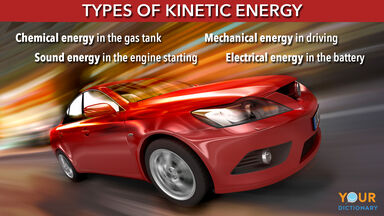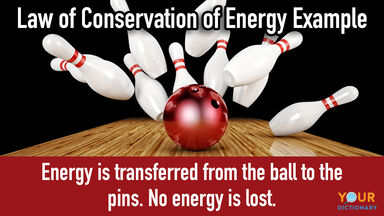Energy Definition
ĕnər-jē
energies
noun
energies
Potential forces; inherent power; capacity for vigorous action.
Webster's New World
Force of expression or utterance.
Webster's New World
Such forces or power, esp. in action.
To apply all one's energies.
Webster's New World
A nonphysical force or quality perceived as inhering in a particular place, person, or situation.
Was turned off by the group's negative energy.
American Heritage
Strength or power efficiently exerted.
Webster's New World
Synonyms:
- strength
- fuel consumption. See syn. study at strength.strength
- gas mileage
- p.d.
- power descent
- critical burn
- burn
- potential
- radioactivity
- rays
- elasticity
- suction
- conductivity
- gravity
- hydroelectric power
Other Word Forms of Energy
Noun
Singular:
energyPlural:
energiesOrigin of Energy
-
French énergie from Late Latin energīa from Greek energeia from energos active en- in, at en–2 ergon work werg- in Indo-European roots
From American Heritage Dictionary of the English Language, 5th Edition
From Middle French énergie, from Late Latin energia, from Ancient Greek ἐνέργεια (energeia, “action, act, work”), from ἐνεργός (energos, “active”), from ἐν (en, “in”) + ἔργον (ergon, “work”).
From Wiktionary
Find Similar Words
Find similar words to energy using the buttons below.





